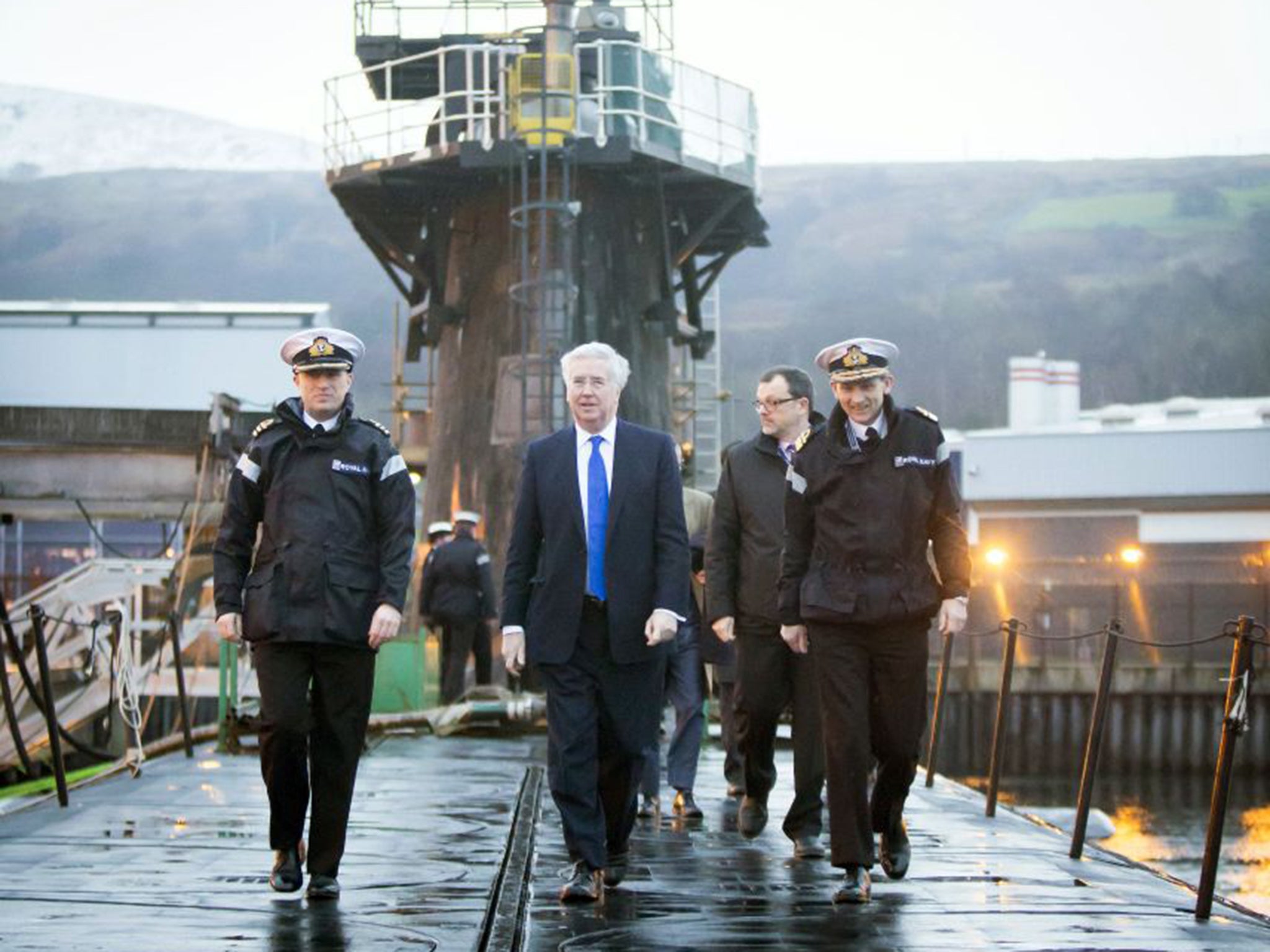Trident: Army considers guarding Britain's nuclear sites as staff shortages fuel security worries
Exclusive: Concerns that soldiers on military bases could use firearms unchecked, as a critical shortage of MoD police is revealed

Your support helps us to tell the story
From reproductive rights to climate change to Big Tech, The Independent is on the ground when the story is developing. Whether it's investigating the financials of Elon Musk's pro-Trump PAC or producing our latest documentary, 'The A Word', which shines a light on the American women fighting for reproductive rights, we know how important it is to parse out the facts from the messaging.
At such a critical moment in US history, we need reporters on the ground. Your donation allows us to keep sending journalists to speak to both sides of the story.
The Independent is trusted by Americans across the entire political spectrum. And unlike many other quality news outlets, we choose not to lock Americans out of our reporting and analysis with paywalls. We believe quality journalism should be available to everyone, paid for by those who can afford it.
Your support makes all the difference.Staff shortages at the police force responsible for guarding the UK’s nuclear weapons bases and other key military facilities are now so severe that the Ministry of Defence is considering whether to use serving soldiers to plug the gaps.
A shortfall in the number of trained frontline officers serving with the MoD Police (MDP) has led to the option of deploying troops being given “serious consideration” by ministers, the head of the body representing rank-and-file officers told The Independent on Sunday.
The move comes after an official report on the force – whose officers play a crucial role in protecting the UK’s defence infrastructure at more than 120 military sites around the UK – warned that current staffing levels were “not sustainable” without risking security.
Eamon Keating, the chairman of the Defence Police Federation, said using soldiers had been discussed by the MoD and senior MDP officials. But he warned that while using military personnel to do the job of police firearms officers sounded “quite sensible”, the two roles were very different: “A police officer is taught from day one to protect life and preserve the law, but soldiers are taught to be soldiers. They’re two completely different animals ....
“If a police officer fires their weapon ... we are scrutinised by the law and by independent groups like the Independent Police Complaints Commission. There is a full and proper process. I’m not sure that process exists for the military.”
MDP officers protect some of the UK’s most sensitive military sites, including the Faslane naval base, home to the Trident nuclear deterrent, the atomic weapons sites at Aldermaston and Burghfield, and the MoD’s Whitehall offices in London.
The Defence Secretary, Michael Fallon, told the House of Commons last month that some military personnel had “the flexibility to perform both armed and unarmed guarding” at bases across the UK and that police resources should instead be focused on tasks “where civil policing powers can best mitigate crime and security risks”.
Labour has voiced concerns about the apparent change in policy. “It is highly inappropriate for the MoD to expect the military to fill in the gaps left by cuts to its civilian workforce,” said Emily Thornberry, the shadow Defence Secretary. “But with more cuts on the way, adding up to 30 per cent of the MoD’s entire civilian workforce, this is a problem which is likely to get worse before it gets better.”
In this latest report on the force, produced in the summer and published last week, the MoD Police Committee said it was reliant on officers working “excessive overtime” to maintain security despite a recruitment drive which began three years ago. In 2014/15 the force’s headcount only increased by five officers due to retirements and other departures.
Mr Keating said he was “not confident” that security at UK military sites was good enough, due to a lack of police resources. Officers felt “incredibly undervalued”, he added, and were trying to do their jobs “in a very difficult environment”.
An MoD spokesperson said: “As the Defence Secretary has said, it is defence policy to use the MoD Police as part of security arrangements at establishments where there is an essential requirement for constabulary powers. However, the MoD has several security providers and can deploy service personnel in roles where constabulary powers are not deemed essential.”
Join our commenting forum
Join thought-provoking conversations, follow other Independent readers and see their replies
Comments